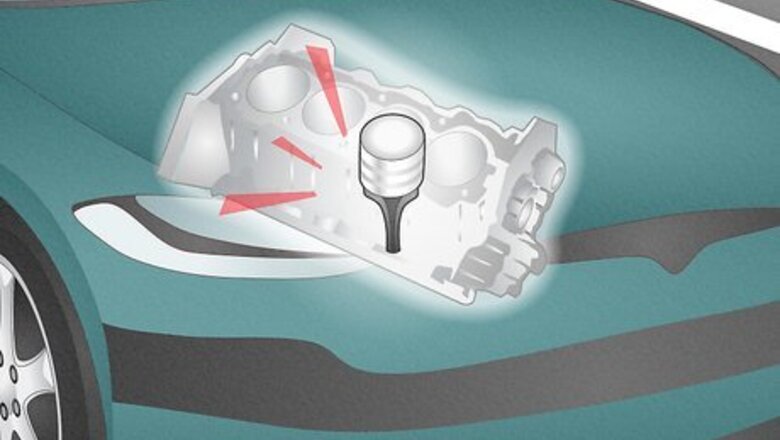
views
Causes & Solutions
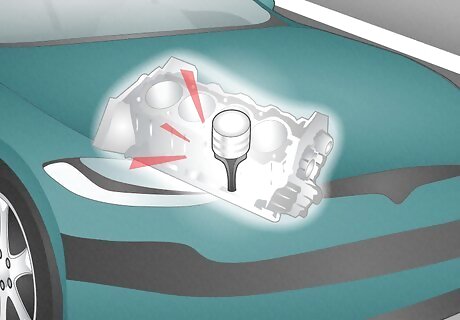
Piston Slap A piston slap occurs when an individual piston inside your engine isn’t perfectly aligned and tightly secured inside the cylinder it fires into. The sound goes away after a few minutes as the piston smooths itself out and finds a cleaner groove. This can happen due to internal rust, old age, or wear and tear in the engine. What does it sound like? This almost always sounds like engine knocking. This distinct, hearty banging noise typically gets louder and faster when you accelerate. Other symptoms: Usually, none. Is this normal in older engines? Yes. If you’ve got over 120,000–15,000 miles (193,000–24,000 km) on an engine, piston slaps are a natural part of life. The solution: Check your car’s oil level. If the oil is extremely low, that’s the culprit. Refill the oil and the issue should resolve itself. Unfortunately, this is just something that naturally happens with old engines.
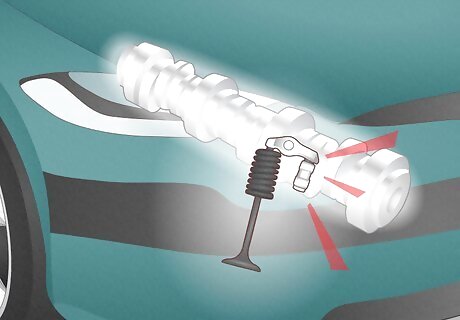
Sticky Lifters Every engine has hydraulic valve lifters between the crankshaft and the engine cylinders. These lifters help raise and lower the pistons. If the lifters are really old or dirty, they can occasionally “stick” as the engine warms up. This will cause noise that slowly goes away as the lifter shakes off any gunk and gets back into its normal pattern. What does it sound like? A ticking or tapping noise. Other symptoms: If the lifter is sticky enough that it causes the cylinder to fire out of sync with the other pistons, it may trigger engine misfires. Your check engine light may also come on when you start the car, only to go away as you drive. Is this normal in older engines? Yes. If this happens once, it is very likely to happen again in the future. The solution: If your car isn’t old and/or you haven’t changed the oil recently, get an oil change. If the engine is on the older side, see a mechanic to have the lifters inspected, cleaned, and replaced, if necessary.
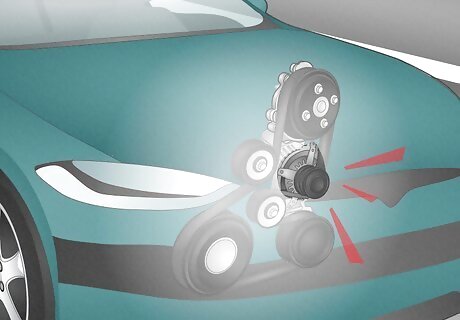
Worn Accessory Components A worn power steering pump, exhaust manifold, water pump, alternator, or crankshaft can all generate a little bit of noise when you turn the engine on. These components all experience a ton of new movement when you start the vehicle, and if the vehicle is on the older side you may hear some odd sounds as the engine starts up and everything gets moving. What does it sound like? It depends on the specific component, but ticking, tapping, and light rattling are all common with worn accessory components. Other symptoms: It depends on the underlying component, but this is not usually a problem if there are no other symptoms interfering with your vehicle’s ability to run. Is this normal in older engines? It can be, yes. However, accessory component noise should still be investigated in the event that something is about to fail. The solution: If there are no other symptoms, don’t worry about this. It’s normal with an older vehicle. If you have any other issues that don’t go away after the engine is warm, see a mechanic.
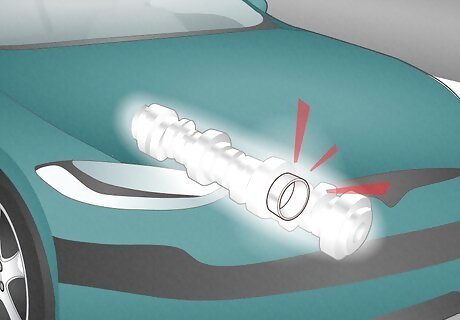
Main Bearing Wear The main bearings hold the crankshaft in place and allow it to rotate. The crankshaft’s job is to convert the “up-down” energy in the pistons into rotational energy for the wheels. If that bearing wears down, the crankshaft gears will grind or wear against the bearing holding it to the crankshaft’s rod. This sound will often go away as the rotation of the crankshaft smooths out. What does it sound like? Typically, this will sound like a thumping or rumbling coming deep from the underside of your engine bay. Other symptoms: Your steering wheel might shake a little bit alongside this noise. Is this normal in older engines? Yes, but with one big caveat. The bearings should never be so worn down that the copper core of the bearing is exposed. That’s a sign the engine is reaching its end of life. The solution: See a professional mechanic. Accessing the bearings in the crankshaft involves a lot of complicated work. You don’t need to do anything right now if the noise goes away after the car starts, but a loose or damaged bearing will eventually fail and make driving impossible.
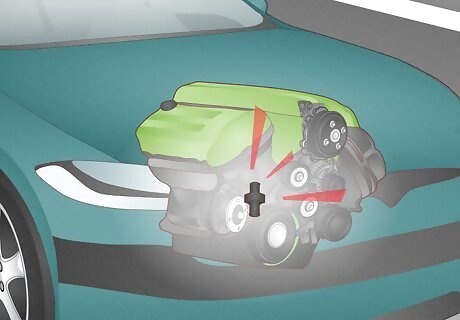
Oil Drain Back There are valves inside of your engine that open and close to allow the flow of oil through your engine. If any of those valves are loose or fail, oil can end up temporarily flowing backward—creating a condition known as “drain back.” This can cause issues as the engine fails to reach key portions of the engine while it floods other parts of that engine. This problem can solve itself as the engine continues to run and the oil levels equalize throughout the engine . What does it sound like? Typically, this will create engine knocking. It may cause other noises if the failing valve is in a different part of your engine, though. Other symptoms: If the problem is especially bad, you may have engine misfires on start. Is this normal in older engines? Yes, but only in vehicles made before 1980 or so, which is when modern valve design seems to have changed and made drain back much less common. The solution: This is rarely a problem worth fixing if it isn’t causing other issues. If you really care about the engine or the problem is out of hand, see a mechanic to have drain-back-protection valves installed inside of the engine.
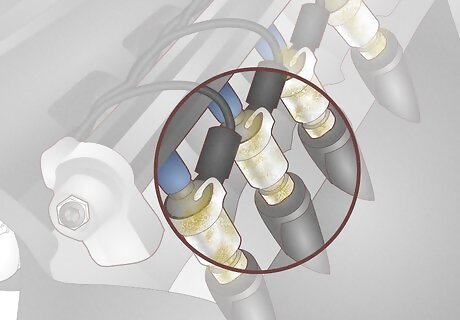
Failing or Dirty Fuel Injector The fuel injectors are the components that shoot the fuel inside the engine from the fuel rail. If one of them doesn’t fire precisely at the correct time when you start the car, the associated cylinder will churn without any fuel to burn. This will create a lot of noise that goes away as soon the fuel finally enters the engine. What does it sound like? A single loud knock when you start the engine, but no additional noises. Is this normal in older engines? Yes, fuel injectors are extremely likely to get dirty in older vehicles. Other symptoms: None. If you do have any additional symptoms, it’s a sign the injector is failing and not just dirty. You may have misfires, a check engine light, rough idling, and overheating if the injector has outright failed. The solution: Locate the fuel injectors by removing the fuel railing on top of the engine (usually, you just squeeze or pull on clips to unlock it). Wash them thoroughly in a fuel injector cleaner and re-insert the fuel railing. If the problem persists, see a mechanic or replace the injectors yourself.
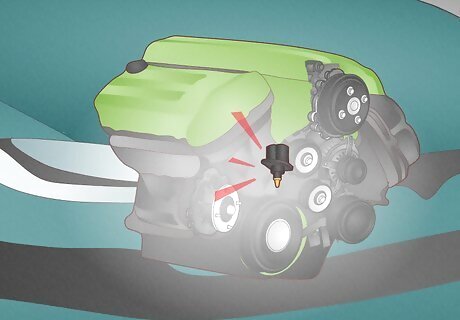
Actuator Damage Actuators are small mechanical or electrical components that convert energy into force. There are dozens of them in your vehicle, but the ones that cause noise when you start the car are connected to your engine. What does it sound like? Squeaking or shaking noises. Other symptoms: You’ll have a check engine light on, poor power on starting the engine, or computer errors. Is this normal in older engines? No. Actuators shouldn’t fail on their own due to wear and tear. The solution: The actuator likely needs to be replaced. See a mechanic so they can identify the problem actuator and have it swapped out.
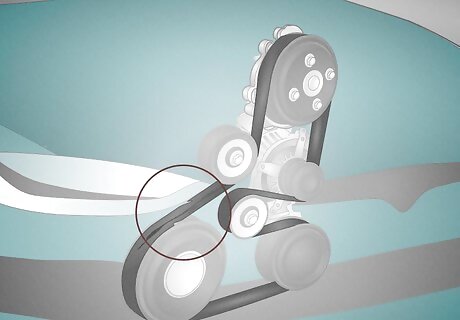
Worn-out Drive Belt The drive belt, also known as the serpentine belt, is a taut piece of rubber that wraps around multiple pullies and gears in your engine bay. It ensures that everything moves in concert with one another at the proper speeds. If the belt is worn down though, your engine may make a noise when you start the vehicle as the belt slips or slides. What does it sound like? It depends just on how loose or worn-out the belt is. Typically, a worn-down belt will cause ticking or squealing. It may cause knocking in extreme cases. Other symptoms: Likely, nothing. Is this normal in older engines? The solution: The belt is probably going to need replacing soon, so swap out the old belt.
Is noise when the car starts always an issue?
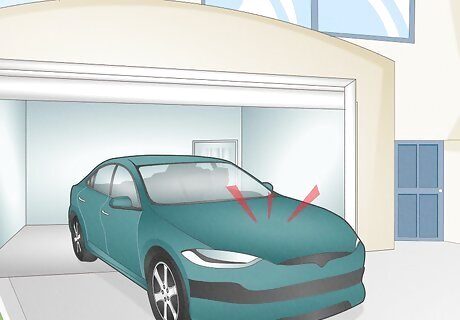
No, noise upon starting is normal for an older engine. Engines are not designed to last forever, and after around 150,000 miles (240,000 km) or so, a lot of tiny components begin to wear down slowly. As a result, an engine’s initial startup noises slowly become more and more noticeable. Usually, a little bit of noise when you start your engine isn’t a big deal if the car is otherwise working correctly. Startup engine noises are also more noticeable if the engine is bigger and stronger than the average engine. A 1968 Mustang with a classic V8 engine is going to sound like a thunderstorm compared to a 2022 Camry with a tiny 2-liter engine.
Can you drive if the car makes a noise when you start it?
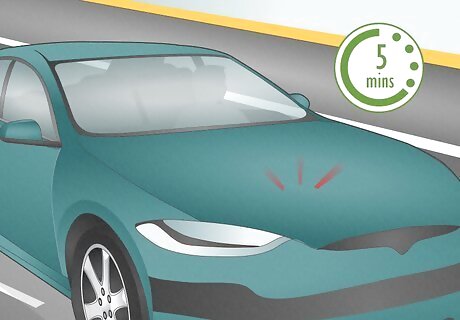
Yes, so long as there are no symptoms after a few minutes. If your vehicle makes a little bit of noise when you start the engine but everything else is in tip-top shape and you can drive safely, feel free to go about your business. You only need to worry about early engine noise if it’s interfering with your ability to drive safely. See a mechanic if you notice you’re losing steering power, you get a persistent check engine light, the vehicle struggles to accelerate, or you experience engine stalls. All of these are major signs that the vehicle needs to be serviced.



















Comments
0 comment